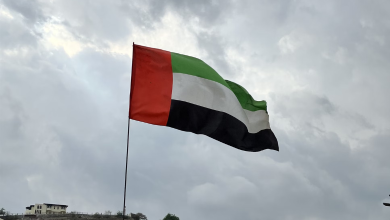Pakistan’s Climate Agenda: A Look at How $10 Million Will Drive Sustainable Change

Pakistan has received $10 million in climate finance to improve integrated and adaptive water resource management in the Indus River,specifically emphasising nature-based solutions to benefit local communities. The Adaptation Fund Board approved the funding for the project named Sustainable Actions for Ecosystems Restoration in Pakistan (SAFER) on Friday. This information comes from a statement by the International Centre for Integrated Mountain Development (ICIMOD) based in Kathmandu.
The Adaptation Fund was created in 2001 to fund specific adaptation projects and programs in developing countries that are Parties to the Kyoto Protocol and are especially susceptible to the negative impacts of climate change. The initiative specifically concentrates on interventions in the water, sanitation, and hygiene (WASH) sector and aims to support women, children and youth to enhance the resilience of communities that are disproportionately affected by climate-related emergencies.
The initiative is crafted to be in line with national strategies such as Pakistan’s National Adaptation Plan and the flagship Living Indus Initiative, which utilises nature-based solutions and ecosystem-based adaptation methods to safeguard, preserv, and rehabilitate natural terrestrial, freshwater, coastal and marine ecosystems in the Basin.
SAFER under the guidance of the Ministry of Climate Change and Environmental Coordination and with ICIMOD as a regional implementing body, aims to implement inclusive approaches to enhance integrated and adaptive water resource management in the Indus River. The focus is specifically on nature-based solutions (NbS) and activities that benefit and aim to enhance the involvement of women, youth and children.
The majority of Pakistan’s population and economy are in the Indus Basin, so changes in the river’s flow due to climate change will have a significant impact on the country’s economy and environment. The initiative will be implemented in Gilgit-Baltistan, Khyber Pakhtunkhwa and Sindh over the next three and a half years. It aims to establish community-based early warning systems in high-risk areas, nature-based systems to reload spring water in water-scarce communities and climate-resilient water infrastructure including nature-based groundwater recharge facilities.
Romina Khurshid Alam, the Prime Minister’s Coordinator on Climate Change & Environmental Coordination supports the project stating that it aligns with the Pakistani government’s focus on addressing climate challenges. The International Centre for Integrated Mountain Development (ICIMOD) is working on this initiative to promote a greene, more inclusive and climate-resilient Hindu Kush Himalaya (HKH) region, which spans 3,500km across eight countries in Asia.



